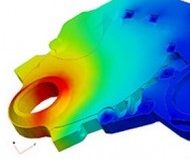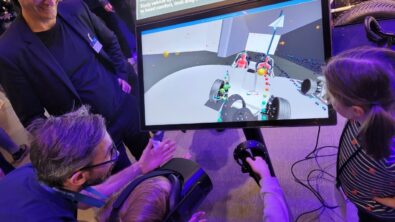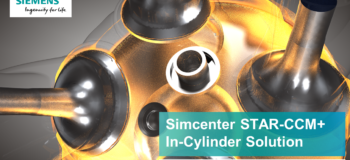Simulation Solutions for Today, Tomorrow, the Future


NX continues to integrate CAD and CAE further, while also building up the capabilities of NX CAE as a standalone application even the most expert simulation analyst would be proud to call theirs.
So where do we stand today, and what does the future look like? Today, we look at the answers to those questions with insights from the Analysis, Simulation, and Systems Engineering Summit (ASSESS), a meeting of the minds from some of the biggest and best simulation companies out there, including our very own Siemens PLM Software.
They determined 10 issues to be most impactful to CAE and the future of simulation. Today we look at five of those that NX CAE already works to address. Enjoy.
- The impact of web, cloud & mobile devices
The cloud has huge implications for simulation. Think faster runtimes when you use the power of cloud computing to divide a problem up into smaller pieces. The cloud also brings the power of simulation to a wider audience than ever before. With the software as a service (SaaS) model, even small companies with a handful of people can afford to run large simulations. And larger companies will get more bang for their buck. NX Nastran is available on the cloud with Rescale. - Analysis & simulation before CAD
Simulation works best when it drives changes to the design. Engineers can validate designs early on to make a product that will perform better and last longer than if simulation was performed as an afterthought. It also allows for faster design-analysis iterations through an integrated process. NX CAE facilitates simulation-driven design because it is based on the same architecture as NX CAD. Software that allows you to implement simulation sooner—as NX CAE does—will continue to be on the forefront of simulation industry minds. - Design centric workflow
Imagine how much time you could save if design engineers could easily comprehend simulation results. They could tweak their design based on the results without having to consult with you, thus freeing you to focus on more complex simulations. Increasing ease of use so that simulation is not just limited to “experts” is a win-win for everyone involved. Expect to see more design centric workflows in simulation software going forward. NX CAE already addresses this issue with its customizable user interface, which allows everyone from designers to high-end analysts to use simulation. Integrated design validation tools also go a long way in making simulation more designer-friendly. - Ease of use and/or usability
It’s not just design engineers who need a user friendly simulation environment: Even CAE experts will see a boost in productivity from increased usability. The new multiphysics environment is one way NX CAE simplifies the complex. Blade clearance analysis is easier to perform, as you can now run both thermal and structural analyses at the same time on one model. You can build a coupled analysis faster and easier than ever before, because you use one mesh with the same properties, loads, and boundary conditions. - Capturing and reuse of knowledge
Who wants to create the same models or data sets over again? It’s not only boring, it’s a waste of time and resources. Knowledge re-use can dramatically reduce design development time, so you get products to market faster. And all of these savings in time translate to savings in cost as well! Time is money, after all. That’s why this concern made the list of top issues in the simulation industry today, and also why you can expect industry leaders to continue to develop ways for their software to capture and reuse information. NX already goes a long way in helping clients with respect to this area. NX Reuse Library is a central platform where users can drag and drop reusable objects into an NX session, among other features.
For more information, be sure to check out the ENGINEERING.com article this post is based on!


